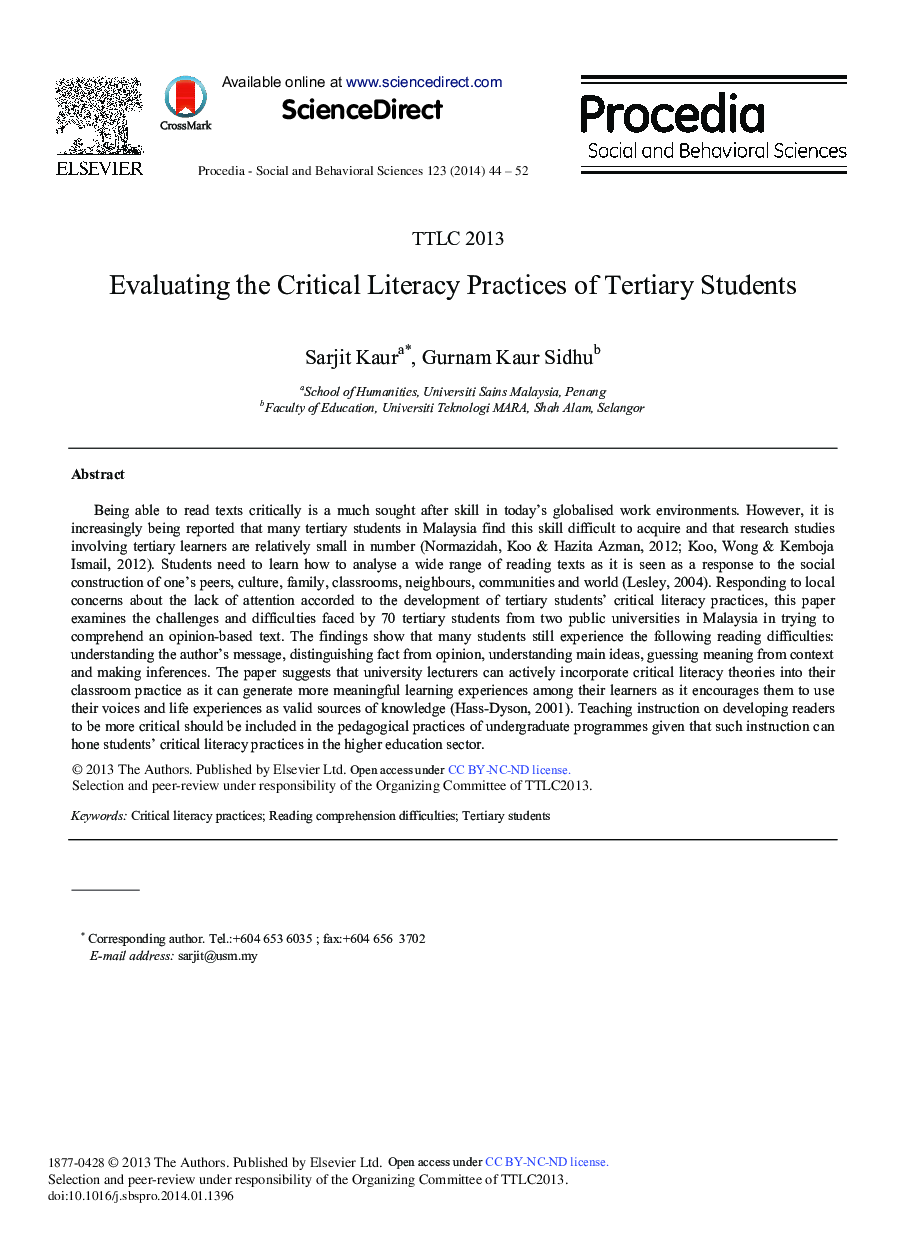| Article ID | Journal | Published Year | Pages | File Type |
|---|---|---|---|---|
| 1114380 | Procedia - Social and Behavioral Sciences | 2014 | 9 Pages |
Being able to read texts critically is a much sought after skill in today's globalised work environments. However, it is increasingly being reported that many tertiary students in Malaysia find this skill difficult to acquire and that research studies involving tertiary learners are relatively small in number (Normazidah, Koo & Hazita Azman, 2012; Koo, Wong & Kemboja Ismail, 2012). Students need to learn how to analyse a wide range of reading texts as it is seen as a response to the social construction of one's peers, culture, family, classrooms, neighbours, communities and world (Lesley, 2004). Responding to local concerns about the lack of attention accorded to the development of tertiary students’ critical literacy practices, this paper examines the challenges and difficulties faced by 70 tertiary students from two public universities in Malaysia in trying to comprehend an opinion-based text. The findings show that many students still experience the following reading difficulties: understanding the author's message, distinguishing fact from opinion, understanding main ideas, guessing meaning from context and making inferences. The paper suggests that university lecturers can actively incorporate critical literacy theories into their classroom practice as it can generate more meaningful learning experiences among their learners as it encourages them to use their voices and life experiences as valid sources of knowledge (Hass-Dyson, 2001). Teaching instruction on developing readers to be more critical should be included in the pedagogical practices of undergraduate programmes given that such instruction can hone students’ critical literacy practices in the higher education sector.
